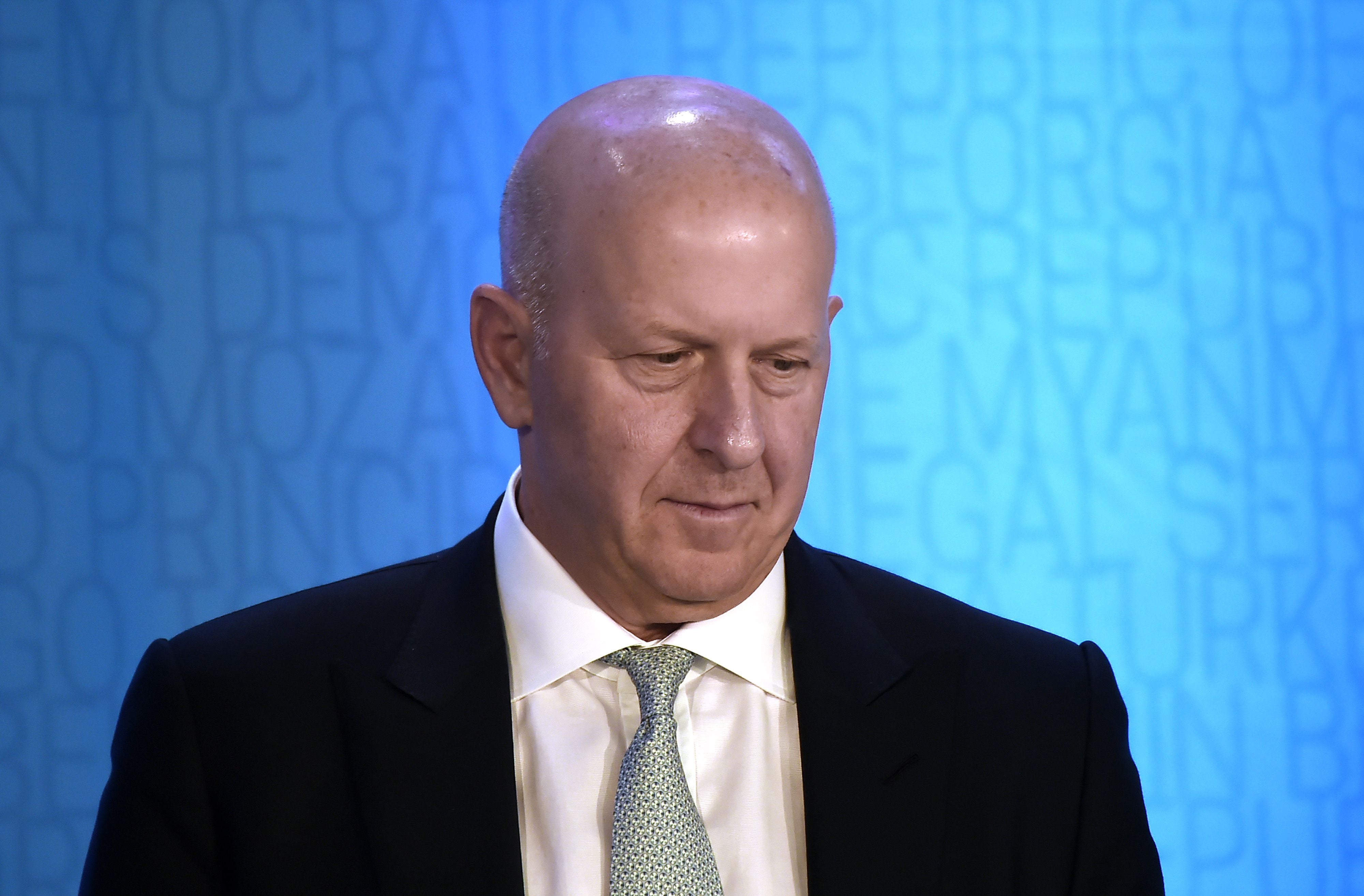Whether it’s a deal or an employee, the Goldman Sachs mindset is to own and to drive
While the head of the investment bank’s swift response to reports of inhumane working conditions was commendable, the whole ethos of the company is built around domination, writes Chris Blackhurst


In some ways, I’ve got sympathy for David Solomon, the head of Goldman Sachs.
There is the investment banking colossus, having invested a lot of money, time and effort into establishing a certain method of operating, then along comes a global pandemic to question its worth. Tearing up this framework and changing working practices to allow people to remain at home is ground-shaking. No wonder then that Solomon described remote working as an “aberration” and indicated his desire for everyone to return to the office.
The reason he gave was that Goldman is an “innovative, collaborative apprenticeship culture”. Having staff in their spare rooms or at their kitchen tables does not sit well in that environment.
Read More:
Solomon’s words seemed benign enough, as if the financial powerhouse was really some enormous, gentle training college, full of eager youngsters sitting at the feet of veterans, mastering their craft.
Then came the leaked report that some of the firm’s juniors claimed they were facing “inhumane” working conditions. The small group of newly hired analysts in the US said they were putting in 100-hour weeks and facing abuse from colleagues that was severely impacting their mental and physical health.
Solomon told the bank’s 34,000 employees via a recorded message that he took the complaints “very seriously” and that the organisation would be taking action to address the issues raised.
While his swift response was commendable, and Solomon did seem genuinely shocked, he had no choice. We live in an age where staff wellbeing must be seen to be at the top of any responsible employer’s priority list.
Goldman is not alone. There would have been many bosses in the City and on Wall Street who would have read of the allegations and seen his reaction, and then crossed themselves and given thanks heavenwards. They, too, expect their young recruits to be at their office desks or in meeting rooms for long hours, and, if needs be, late into the night and back in at weekends. Where Goldman differs, though, is that according to the charges, the demands it made were more extreme.
Like the SAS, Goldman tackles an issue with full force, to kill
At Goldman, the whole ethos is built around acquiring ownership and domination; they don’t take on a matter, they set out to strangle it, to take charge and shape it on their terms.
That desire for control is evident from the very outset, in the graduate recruitment process. Goldman’s leaders boast that candidates will be interviewed over and over, that they may go through numerous rounds and meet tens of bankers before they’re offered traineeships. It’s all part of the Goldman mystique – putting down a marker that they are unique, the toughest, that they set the bar higher than anyone else.
Any recruiter will tell you that an employer’s decision is often settled in a few minutes, if not seconds. At most, a few interviews are all that is required; to require someone to meet numerous bosses, to keep jumping over hurdles, is unnecessary. What it’s about is Goldman seeking to exercise an early hold, to indoctrinate newcomers, making those who achieve the grade believe they are special, that they are would-be titans.
It sets the tone, as well, for what follows. If you’ve obliged a recruit to endure this process, they will do pretty much anything afterwards because they know it’s what is expected. It’s the same as joining the SAS; they, too, put those who wish to become a member of the special forces regiment through hell – yes, to see if they will break, and some do, but mainly to put them on a distinctive path. SAS soldiers have proved they will do whatever it takes.
Like the SAS, at Goldman, they tackle an issue with full force, to kill. They analyse, dissect it every which way, consider the options, then take it down. The SAS motto is “who dares wins”. It could just as easily be Goldman’s. Certainly, Goldman would love to believe it is.
A friend in PR was advising on the communications in a project involving a consortium of banks, Goldman among them. The first thing he noticed was that each bank had two senior people attending the first meeting; Goldman had three. They’d made it their business to find out how many the others were sending and made sure they had one more.
Then he was asked if the Goldman team could meet him ahead of the next meeting. They wanted to map out the agenda, their agenda, for the meeting, to ensure the discussions covered the ground, and went in the direction, they wanted.
Read More:
That became a pattern: Goldman seeking a pre-meeting before the actual meeting. At the pre-meeting, the topic was the agenda for the subsequent meeting. In effect, Goldman was ensuring it owned the project. The rest never knew about the pre-meeting, and they marvelled at the Goldman representatives’ grasp and preparedness – they were making up the numbers, but Goldman was in charge.
The Goldman mindset is to own and to drive. Whether it’s a deal or an employee it doesn’t matter which – they’re all means to the single, profit-generating end.
Join our commenting forum
Join thought-provoking conversations, follow other Independent readers and see their replies
Comments